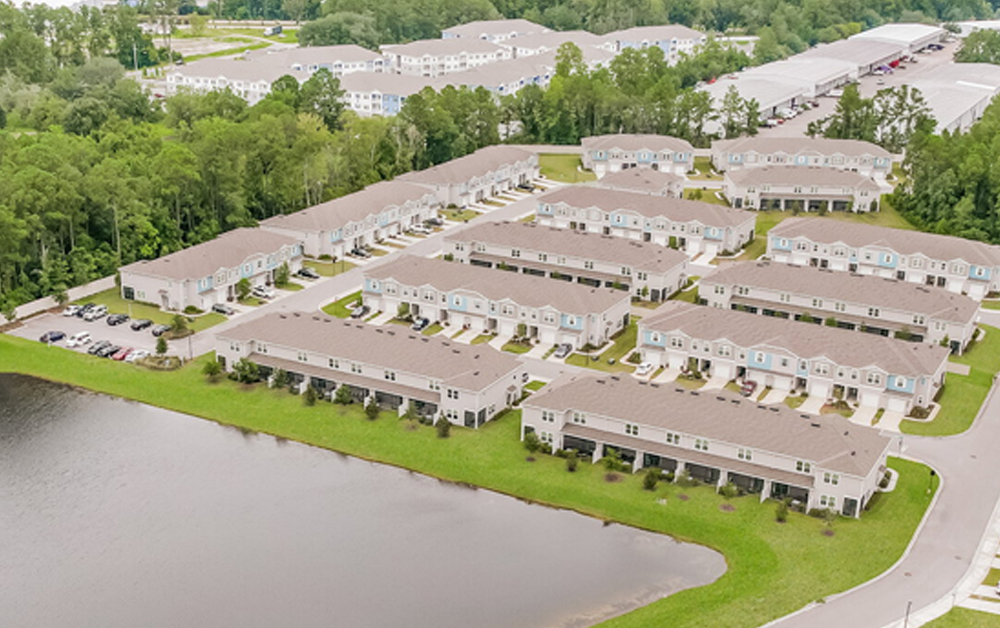
The Critical Role Of Single-Family Rentals in Solving the Housing Crisis
REI Ink, a leading publication for real estate investors, originally featured this op-ed article by Adolfo, our CEO, on affordable housing which we’re sharing here. This article spotlights our commitment to positively impacting the communities we serve by expanding access to secure and stable housing, empowering residents to live in communities of their choice.
By: Adolfo Villagomez
It is no secret that communities across the United States are experiencing a growing crisis: access to housing. With consumers facing increasingly complex and evolving economic challenges in a post- pandemic world, the demand for affordable housing options continues to grow, as the demand for housing overall continues to outpace supply.
According to the 2023 Gap Report from the National Low Income Housing Coalition, the United States has a deficit of 7.3 million rental homes that are affordable and available to individuals and families with extremely low incomes (incomes at or below the federal poverty guideline or 30% of their area median income, whichever is greater).
In addition, data from the Department of Housing and Urban Development on its largest rental assistance program reports that more than 400,000 housing choice vouchers currently go unused, and the primary reason is because voucher holders are unable to find a home.
As a leader in the single-family rental industry, Progress Residential has a responsibility to be part of the solution to the housing crisis in our country. Our size, scale and investments in data and technology allow us to test and deploy solutions to housing challenges and positively impact our resident experience. We also work in partnership with institutional investment to deploy private capital for public good, expanding access to secure and stable housing and empowering residents to live in communities of their choice in a time when that access is more challenging than ever.
As part of this work, Progress has made a commitment to grow our affordable housing operations across the country, with a focus on expanding our participation in the federal Housing Choice Voucher Program (Section 8), pursuing innovative, community-based partnerships, and supporting our residents’ economic mobility through financial tools like free positive rent reporting.
Increasing Participation in the Housing Choice Voucher Program (HCVP)
In 2023, we announced plans to accelerate and expand our affordable housing footprint by increasing the number of residents with Housing Choice Vouchers in partnership with local public housing authorities. To support this critical work, we needed to make significant investments in our operational infrastructure, as the Housing Choice leasing process and the needs of the residents we serve through this program are different from our core business. Investments included recruiting a talented leadership team with specific knowledge and experience building successful affordable housing programs and technology and processes to support the nuances of working with local housing authorities and HCV holders.
While we still have work ahead to refine our platform to continue to allow us to scale, at the end of 2023, we grew our affordable housing portfolio by nearly 75% while building critical partnerships with more than 100 local Housing Authorities. We continue to gain valuable insights that will help us grow our affordable housing footprint in the future.
Pursuing Innovative, Community-Based Partnerships to Increase Access to Affordable Housing
Another way we can make a positive impact in our communities is by pursuing innovative public- private partnerships to address affordable housing.
In the fall of 2022, Progress Residential and Pretium worked in partnership with Atlanta Mayor Andre Dickens, the City of Atlanta and several community partners to successfully relocate dozens of Atlanta families from Forest Cove, a federally assisted housing community condemned by the City, into single-family homes. Progress was able to leverage our scale and skilled operations team to provide multiple options for secure, stable single-family rental homes that better met the needs of the families, creating a model for public-private partnership that the company aims to replicate in other communities.
Reporting Positive Rent Payments to Credit Bureaus Empowers Residents
In March 2022, Progress pioneered a ground-breaking approach to resident financial empowerment, offering free positive rent reporting for all Progress residents. Through a partnership with a financial technology platform, Esusu, Progress offers a free service to our residents that reports on-time rent payments to all three major credit bureaus to help build credit, improve financial wellness, and promote wealth creation.
Supporting previously credit-invisible residents and facilitating credit score improvements is aligned with our goal of promoting equitable participation and access.
The rent reporting program has made a measurable impact for our residents. At the end of November 2023, 180,000 residents were participating, with 53% of participants experiencing an increase in their credit scores, and an average credit score improvement of 43 points.
For some Progress residents, this could represent a 5 to 10% decrease in interest rates on borrowing. Seven percent of residents moved from subprime to prime credit, increasing access to credit, and more than 6,700 residents established a first-time credit score and are no longer credit invisible, a major milestone toward financial independence.
When we look at the program’s impact on former residents of Forest Cove, as of Fall 2023, 79% have increased their credit scores since enrolling in positive rent reporting, and more than 32% have now established a first-time credit score and are no longer credit invisible.
We continue to roll out additional financial wellness tools to support our resident’s economic mobility.
Why Access to Single-Family Rental Homes Matters
According to research by Raj Chetty and Nathaniel Hendren, access to high-opportunity neighborhoods can increase chances for economic and social mobility, giving families an opportunity to thrive and potentially ending the cycle of poverty for their children.
Through our platform, Progress Residential is expanding choice and opportunity through access to neighborhoods that have lower poverty and crime rates, higher performing schools, more mixed incomes and amenities families seek. Single-family homes are typically in less dense neighborhoods with more accessible green space and more square footage to accommodate larger households than other types of rental options.
We focus on the safety of our neighborhoods and on providing working and middle-income families new opportunities in differentiated neighborhoods. Many of our homes are in homeowners association subdivisions and may have access to better schools than the local renter market options.
By taking a social lens to our homes and seeking to drive capital to all areas of the housing market, Progress Residential is focusing on improving our resident experience and promoting economic mobility, a responsibility we take very seriously.



